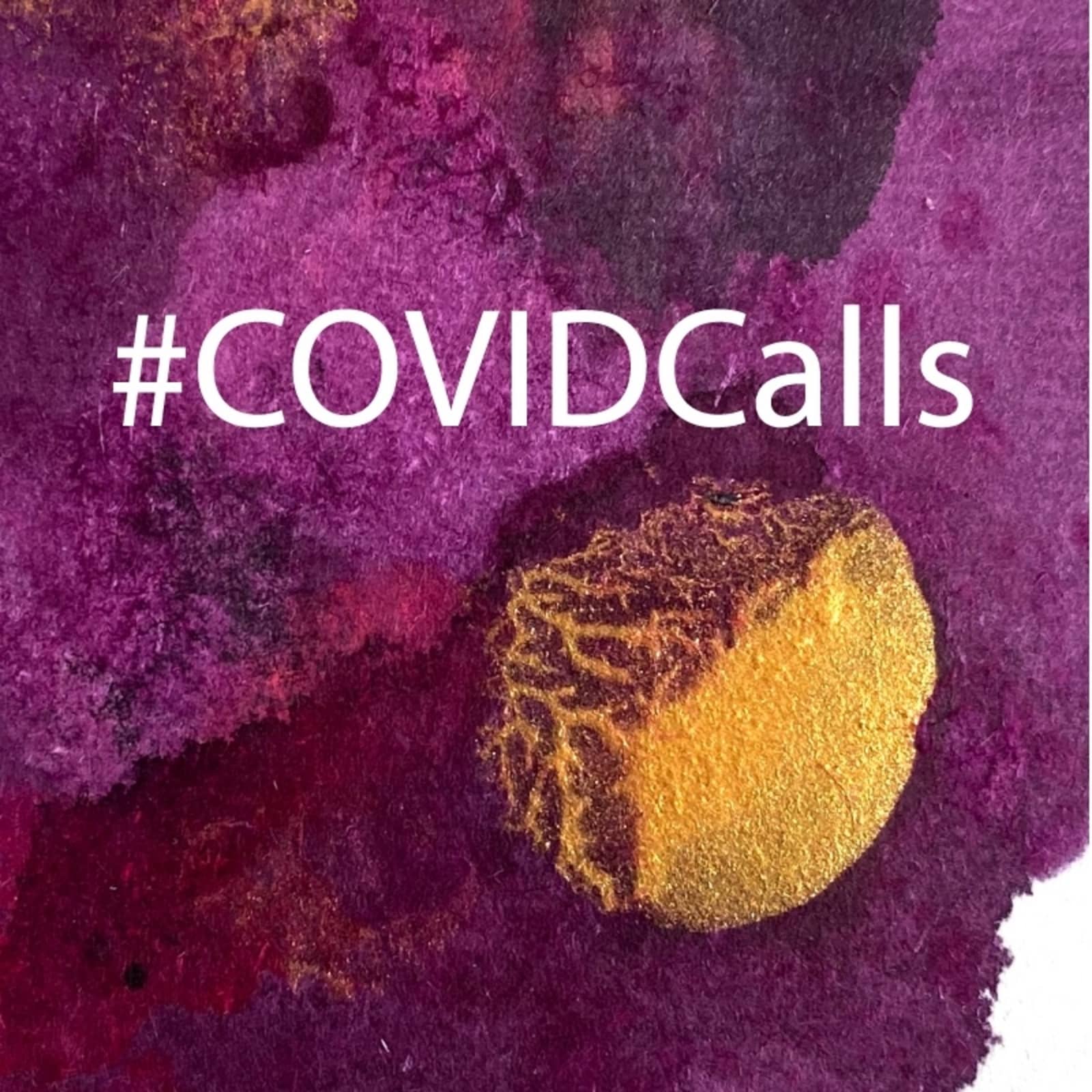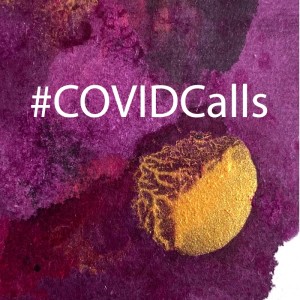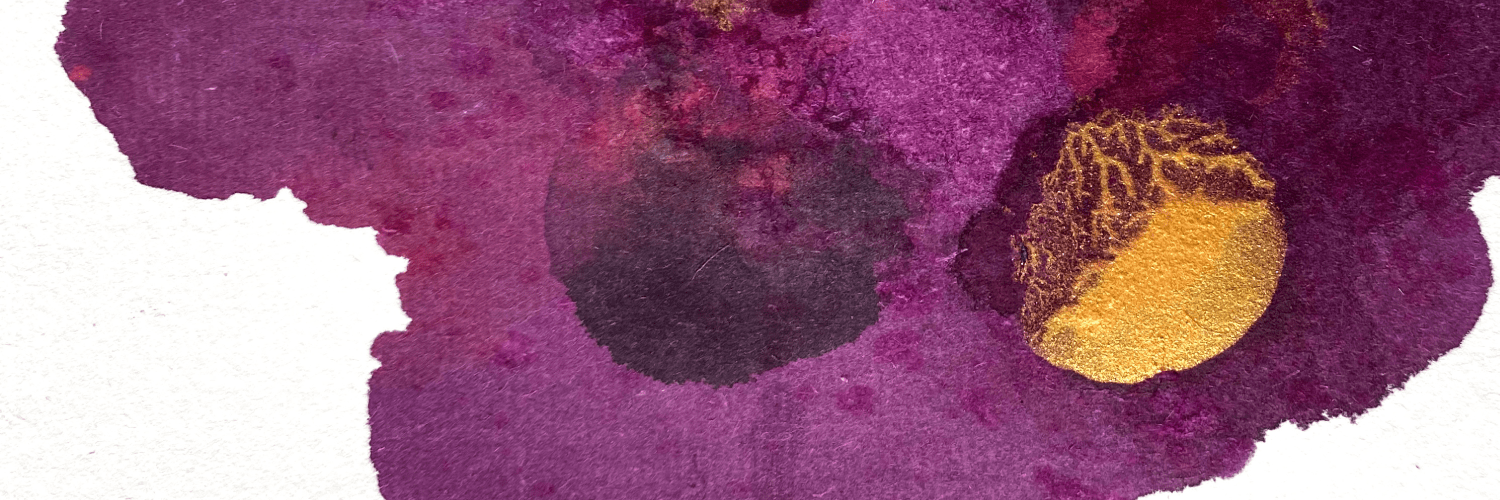
56K
Downloads
504
Episodes
A daily discussion of the COVID-19 pandemic with a diverse collection of disaster experts - hosted by Dr. Scott Gabriel Knowles, a historian of disasters at KAIST in Daejeon, South Korea.
A daily discussion of the COVID-19 pandemic with a diverse collection of disaster experts - hosted by Dr. Scott Gabriel Knowles, a historian of disasters at KAIST in Daejeon, South Korea.
Episodes

Monday Jun 01, 2020
#43 COVIDCalls 5.13.2020 - Pandemics in History V
Monday Jun 01, 2020
Monday Jun 01, 2020
A century from now, what will historians be looking at for the COVID-19 archives? President Trump’s daily briefings? Journals of healthcare workers or other civilians? How will future generations pull lessons from what we are living through? Tune in to this conversation with Monica H. Green, an elected Fellow of the Medieval Academy of America, and Jacob Steere Williams, an associate professor at the College of Charleston, to take a deeper look into pandemics throughout history. Their information can be found here: http://blogs.cofc.edu/steerewilliamsj/about-me/ and https://independentscholar.academia.edu/MonicaHGreen.

Monday Jun 01, 2020
#42 COVIDCalls 5.12.2020 - Researcher’s Roundtable
Monday Jun 01, 2020
Monday Jun 01, 2020
Want to know what impacts COVID-19 has on transport methods, the environment, or infrastructure? Ever wonder about the national discourse about disparate impacts of COVID-19 affecting black communities in the United States? Join us in this researcher’s roundtable discussion with Rachel Chiquoine, a Civil Engineer in the U.S. Department of Transportation, Jennifer Trivedi, a Core Faculty Member at the Disaster Research Center, and Darien Alexander Williams, a PhD student at MIT (Massachusetts Institute of Technology), to learn more. Their information can be found here: https://www.linkedin.com/in/rmchiquoine/, https://www.drc.udel.edu/people/faculty/jtrivedi?uid=jtrivedi&Name=Jennifer%20Trivedi, and http://dusp.mit.edu/student/darien-alexander-williams.

Monday Jun 01, 2020
Monday Jun 01, 2020
How can public health officials use social media to communicate important messages about COVID-19 to the public amidst rampant misinformation and disinformation? What causes certain messages about risk to break through online while others get lost in the noise?
Dr. Jeanette Sutton, an associate professor in the Department of Communication and the Director of the Risk and Disaster Communication Center at the University of Kentucky, and Dr. Joan Donovan, the Research Director at the Shorenstein Center on Media, Politics, and Public Policy at the Harvard Kennedy School, both discuss misinformation, disinformation, and social media during the COVID-19 Pandemic. Dr. Sutton talks about her research early on in the development of social media and how risk communicators have come to use these platforms. In particular she talks about the difficulty of public health authorities and other officials to break through the algorithm to reach the public. Dr. Donovan talks about how her research studying media disinformation and bad actors intersects with Coronavirus misinformation and disinformation online. She emphasizes the need for social media companies to be proactive in curation and engage with independent researchers to identify potential manipulation. They both discuss the potential of future response and research of social media and disinformation as it relates to COVID-19 and other disasters.
In this episode the obituary of Krist Guzman of Bolingbrook, IL is read in remembrance of her life.
For further reading:
“Risk Communication and Social Media” in Risk Conundrums: Solving Unsolvable Problems
“Social-Media Companies Must Flatten the Curve of Misinformation”
“Republicans Want Twitter to Ban Chinese Communist Party Accounts. That’s a Dangerous Idea.”

Monday Jun 01, 2020
#39 COVIDCalls 5.7.2020 - COVID & Climate Action
Monday Jun 01, 2020
Monday Jun 01, 2020
Is the COVID-19 pandemic a preview of the type of disruptions that will come with the climate crisis? How are cities responding to and preparing for climate change related threats in a way that promotes environmental justice?
Daniel Zarrilli, the Chief Climate Policy Advisor for the New York City Office of the Mayor, discusses how New York City is preparing for the climate crisis and working towards environmental justice. Zarrilli discusses his experience with Hurricane Sandy and how it put him on the path to dealing with climate change in municipal government. He also talks about the OneNYC 2050 long-term strategic plan for climate change as well as the C40 Cities network that connects cities around the globe to respond to the climate crisis. Zarrilli argues that the pandemic is an opportunity to move in a different direction on climate by investing in clean energy and infrastructure, fixing democracy, and helping city residents live healthier lives. He also discusses how students and young people can get involved in the response to climate change.
In this episode the obituary of Henry Grimes of New York City, NY is read in remembrance of his life.
For further reading:
“On #EarthDay50, The Answer to Two Existential Crises is Staring Us in the Face”
“Air pollution falls by unprecedented levels in major global cities during coronavirus lockdowns”

Monday Jun 01, 2020
#38 COVIDCalls 5.6.2020 - COVID & the Apocalyptic w/ Chuck Strozier
Monday Jun 01, 2020
Monday Jun 01, 2020
How does the COVID-19 pandemic evoke fears of the apocalypse and what is the psychology of apocalyptic thinking in the United States? How does COVID-19 fit into the history of apocalyptic visions and narratives from the Book of Revelation to nuclear holocaust?
Dr. Chuck Strozier, a practicing psychoanalyst and professor emeritus of History at John Jay College, discusses COVID-19 and its connection to the history of the apocalypse, apocalyptic fears, and apocalyptic thinking in the United States. Dr. Strozier talks about the resonances between nuclear radiation and the coronavirus as invisible threats of death. He also offers his analysis of the Trumpist mindset and the reactions of the President and his followers to the pandemic. Dr. Strozier discusses historical analogues for the pandemic and COVID-19 survivors, emphasizing the long process of mourning and the ultimate resilience of the human spirit.
In this episode the obituary of Guillermo Frestan of New York City, NY is read in remembrance of his life.
For further reading:
Apocalypse: On the Psychology of Fundamentalism in America
The Fundamentalist Mindset: Psychological Perspectives on Religion, Violence, and History

Monday Jun 01, 2020
Monday Jun 01, 2020
What are the challenges and opportunities COVID-19 presents for disaster researchers? What are the central problems with emergency management in the United States? What is the state of the pandemic in Philadelphia in early May 2020?
Dr. Esther Chernak, professor at the Drexel University School of Public Health, rejoins to update listeners on the state of COVID-19 in Philadelphia and Pennsylvania as of May 5, 2020, focusing particularly on the data of the pandemic and how it affects modeling. Dr. James Kendra, Professor at the Biden School of Public Policy and Administration and co-director of the Disaster Research Center at the University of Delaware, discusses how COVID-19 has impacted disaster research, what it has revealed about our political economy, and how emergency managers have responded. Dr. Kendra discusses the familiar and unfamiliar aspects of the pandemic and how it has affected the fieldwork of disaster researchers as they work from home. He also discusses the fragmented system of disaster management in the United States and the consequences of its discontinuous structure. He also talks about the crisis of legitimacy faced by higher education and how academics can explain their value in this moment.
In this episode the obituary of Daniel and Valerie Zane of Haverford, PA is read in remembrance of their lives.
For further reading:
“As Trump Pushes Reopen, Government Sees Virus Toll Nearly Doubling”
American Dunkirk: The Waterborne Evacuation in Manhattan on 9/11
“Before Outbreak, a Cascade of Warnings Went Unheeded”
“States Made it Harder to Get Jobless Benefits. Now That's Hard to Undo.”

Monday Jun 01, 2020
#36 COVIDCalls 5.4.2020 - The Maintainers of the World During a Pandemic
Monday Jun 01, 2020
Monday Jun 01, 2020
Who do we rely on to keep the world running during the COVID-10 pandemic? What makes a worker “essential” during a pandemic, and is there really a difference between essential work during a pandemic and during normal times?
Dr. Andrew Russell, the Dean of the College of Arts and Sciences at State University of New York Polytechnic Institute, and Dr. Lee Vinsel, an assistant professor of history at Virginia Tech, both discuss what makes work and workers “essential” in the pandemic. Dr. Russell and Dr. Vinsel both talk about their research on maintainers, maintenance work, and the long history of assigning low status to workers who help our world run. Dr. Lee discusses how the idea of essential work relates to maintenance and how the pandemic makes essential work visible. Dr. Russell discusses how the pandemic has also been a stress test for our infrastructure ranging from supply chains, food production, and even the internet. They both discuss how prizing innovation, “genius” inventors, and disruption obfuscates the work that is required to maintain our world.
In this episode Host Scott Knowles begins the reading of an obituary of someone who died of COVID-19. The obituary of Paul Cary of Colorado Springs, CO is read in remembrance of his life.
For further reading:
The Innovation Delusion: How Our Obsession with the New Has Disrupted the Work that Matters Most

Monday Jun 01, 2020
#35 COVIDCalls 5.1.2020 - Labor, Gender, and Essential Work
Monday Jun 01, 2020
Monday Jun 01, 2020
Dr. Eileen Boris, Hull Professor of Feminist Studies at University of California - Santa Barbara, Dr. Silvia Federici, a professor at Hofstra University, and Juliana Feliciano Reyes, a journalist for the the Philadelphia Inquirer, all discuss the intersections of labor, gender, and a pandemic that has forced many workers into new forms of precarity. Dr. Boris and Dr. Federici both talk about working from home during the pandemic, both for people who have been thrust into remote work and those who were already doing work at home and reproductive work, like mothers and domestic workers. Reyes discusses her recent labor reporting that examines new forms of worker precarity and organized resistance brought about by the pandemic in Philadelphia. They all talk about the simultaneous valorization and devaluation of “essential work” during the pandemic and talk about how we could move towards a more just valuation of work and human life.
For further reading:
“When the Home Is a Worklplace”
Patriarchy of the Wage: Notes on Marx, Gender, and Feminism
“The Coronavirus Shines Light on a Dark Side of Subcontracting”

Monday Jun 01, 2020
#34 COVIDCalls 4.30.2020 - COVID-19, Disaster Governance, and Federalism
Monday Jun 01, 2020
Monday Jun 01, 2020
How has COVID-19 revealed and exacerbated fundamental disagreements over federalism in the United States that have been brewing for 230 years? Why does disaster reveal the broken linkages between different layers of government?
Dr. Don Kettl, the Sid Richardson Professor at the LBJ School of Public Affairs at University of Texas-Austin, discusses the impact of federalism on disaster governance in the United States and how this dynamic has played out during the pandemic as of April 2020. Dr. Kettl gives a broad stroke history of American federalism from the founding to the present day, showing the problems presented by federalism are still unresolved. He also talks about the surprising correlation between state lockdown policies and ACA Medicaid Expansion, revealing the larger systemic differences between states. Dr. Kettl talks about why he sees the current configuration as unsustainable and discusses a path forward for the government after the pandemic ends.
For further reading:
“New Jersey reports 460 coronavirus deaths, highest single-day death toll”

Monday Jun 01, 2020
#33 COVIDCalls 4.29.2020 - The Pandemic’s Impact on Immigrant Communities
Monday Jun 01, 2020
Monday Jun 01, 2020
How is the COVID-19 pandemic affecting immigrant communities in the United States? How are those in the Trump administration and in the immigration restrictionist movement broadly using the emergency to further their policy goals?
Dr. Carly Goodman, a visiting assistant professor of Modern American History at Lasalle University, and Camille Mackler, the Executive Director at Immigrant Advocates Response Collaborative, both discuss the legal, health, and economic challenges immigrants face due to the pandemic and the Trump administration. Dr. Goodman discusses how the immigration restrictionist movement is using the pandemic to further restrict legal immigration. She also talks about the longer bipartisan history of hardline immigration policy in the US, and how the U.S. often plays a role in creating conditions that cause people to migrate. Mackler talks about the risk of infection at Immigration and Customs Enforcement (ICE) facilities and the difficulties of conducting immgration court during the pandemic. Dr. Goodman stresses the importance of historian voices to help us understand this moment. Mackler highlights the need for activism, volunteerism, and everyday acts of solidarity to help the immigrant communities in the United States.
For further reading:
“President Trump’s Immigration Suspension Has Nothing to do with Coronavirus”
“The poultry industry recruited them. Now ICE raids are devastating their communities.”
